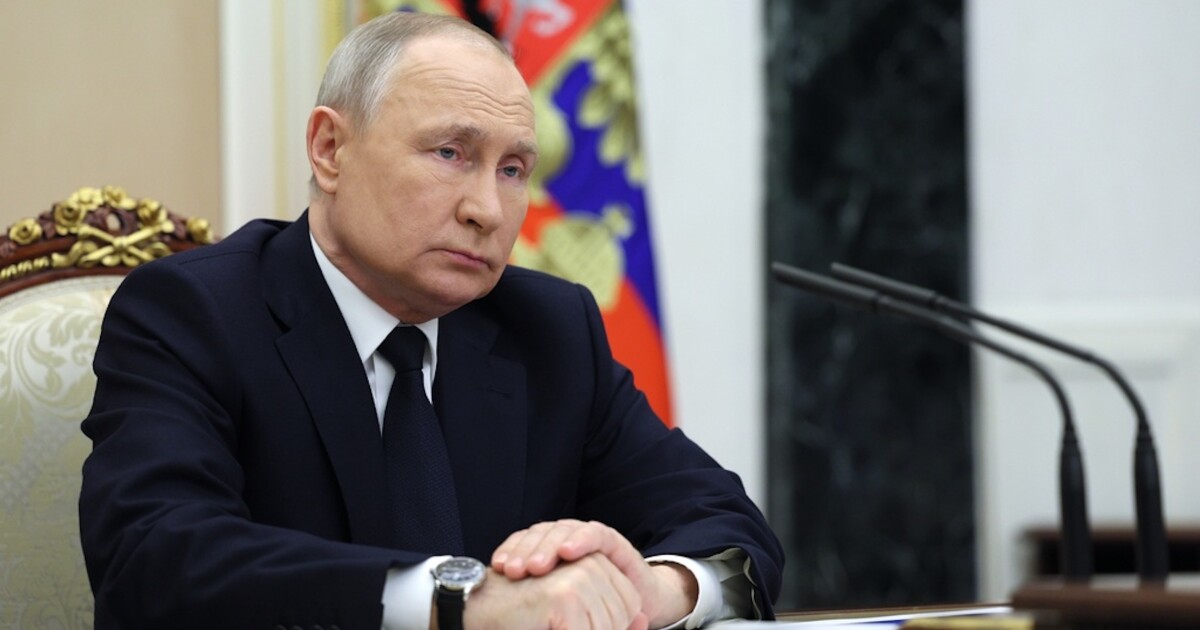

Russia plans to station tactical nuclear weapons in neighboring Belarus, Russian President Vladimir Putin announced on Saturday.
The Russian leader made the announcement in an interview with Russian state media on Saturday, saying that Belarusian President Alexander Lukashenko, a close Putin ally, had agreed to the deployment. He also revealed that the Kremlin had already transferred an Iskander short-range missile system, a device which can be fitted with nuclear or conventional warheads, to Belarus. Russia had also helped Belarus update 10 aircraft to make them capable of carrying tactical nuclear weapons and would start training pilots to operate the planes in early April, he said.
CHINESE LEADER XI HOSTS PUTIN-ALIGNED BELARUSIAN PRESIDENT LUKASHENKO
Putin added that Russia had begun construction on special storage facility for tactical nuclear arms in the country that was expected to be completed by early July. He said that Moscow would not transfer control of the weapons to Minsk.
The Russian leader said the move was a direct response to the United Kingdom’s decision to provide Ukraine with armor-piercing rounds containing depleted uranium. It serves as an effort to dissuade the U.K. and its NATO allies from continuing military support for Ukraine, and marks Putin’s most significant threat of nuclear force since launching Russia’s invasion last February.
For his part, Putin said the move would not violate nuclear non-proliferation promises. He declined to say how many of the weapons Moscow intended to keep with its northern neighbor. The U.S. government believes Russia has about 2,000 tactical nuclear weapons.
Tactical nuclear weapons are small nuclear warheads intended for short-range use on the battlefield or for a limited strike, such as bombs that can be carried by tactical aircraft, warheads for short-range missiles, and artillery rounds.
Putin has relied on his vast nuclear arsenal to dissuade the West from intervening more significantly to stop his invasion of Ukraine. Whenever Ukrainian President Volodymyr Zelensky would plead with the United States and allies for advanced weaponry, Putin and top Kremlin leaders have consistently warned that doing so would take the conflict to a “new level.” While Putin has publicly denied reports that he would consider using a nuclear weapon in Ukraine if it ensured his ability to take the Eastern European country by force, Saturday’s move serves to warn Western leaders of his ability to do so.
The Kremlin announced last month that Russia was suspending, but not withdrawing from, its participation in the New START treaty with the U.S., which limits both sides’ strategic nuclear arsenals. The treaty is the only agreement left regulating the world’s two largest nuclear arsenals, though the U.S. State Department had accused Russia of failing to adhere to it just one month before the suspension.
CLICK HERE TO READ MORE FROM THE WASHINGTON EXAMINER
The treaty was signed in 2010 by then-Presidents Barack Obama and Dmitry Medvedev. President Joe Biden agreed to extend it just days before its expiration in February 2021 for another five years into 2026. Each side is permitted to conduct up to 18 inspections of nuclear weapons sites annually to ensure the other is compliant with the treaty, though both sides agreed to pause that aspect of the agreement in March 2020 due to the coronavirus pandemic.
The two sides were set to meet in November in Egypt to start talks about resuming inspections, but the Russian side postponed it.






